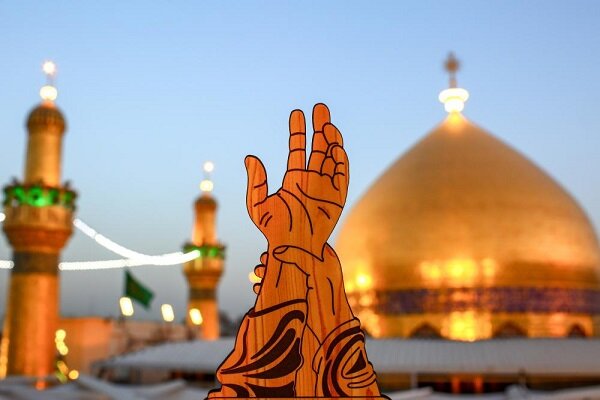Eid al-Ghadir is the day that Islam perfected
Eid al-Ghadir is a Shi'a holiday that celebrates the appointment of Ali ibn Abi Talib, Prophet Muhammad's cousin and son-in-law, as the Prophet's successor.

Eid al-Ghadir, the day on which Imam Ali (AS) was chosen by God as the successor of Prophet Muhammad (PBUH), is an Islamic commemorative holiday and is considered to be among the significant holidays of Shi'ite Muslims.
Eid al-Ghadir is a Shi'a holiday that celebrates the appointment of Ali ibn Abi Talib, Prophet Muhammad's cousin and son-in-law, as the Prophet's successor. The festival takes its name from the place where the Prophet Muhammad is believed to have made this announcement, the Pond (Ghadir) of Khumm.
Eid al-Ghadir is the commemoration of Prophet Muhammad’s (saw) final sermon at Ghadir Khumm, which took place on the 18th of Dhu al-Hijjah, 10 AH. Shias celebrate this event as the basis for their acceptance of Imam Ali's (as) succession to the Prophet.
In the Farewell Pilgrimage that took place ten years after hijrah (the migration), Prophet Mohammad called on Muslims to join him in his last pilgrimage to Mecca. The event witnessed the largest Muslim gathering in the presence of the Messenger of God.
While traveling from Mecca to Madina after the last hajj, the Prophet (saw) and his companions stopped at a lake three miles from Al-Johfa.
The Prophet (saw) then came to a halt in Ghadir Khuum, a site between Mecca and Medina. In front of hundreds of people, he proclaimed that Imam Ali (a.s.) was his chosen successor to rule Islam after him. He held up Imam Ali’s (a.s.) hand during his address and said:
“Ali is to be the Master of whoever I was Master (Mawla). Oh Allah, be a friend to those who support him (Ali) and an enemy to those who resist him (Ali).”
It was at that moment, that all the believers hailed Prophet Muhammad’s choice and congratulated Imam Ali (AS). The following verse of the Quran was revealed after the Prophet (saw) finished his discourse;
“Today I have perfected your religion and completed my bounty upon you, and I was satisfied that Islam be your religion” (Quran; 5:3)
This Quranic verse is noteworthy because it shows that Imam Ali (a.s.) was selected by Allah rather than Prophet Muhammad (saw) and that there was a rationale for Imam Ali’s (a.s.) selection.
On this day, Imam Ali (a.s.) was appointed the first of twelve Imams who would continue to give leadership and authority in Islam, marking the conclusion of Prophethood and the commencement of the Institution of Imamate.




